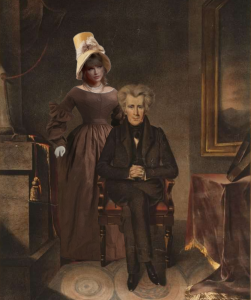Some things are better with age: wine, cheese, Colin Firth in Mamma Mia. Time isn’t so kind to others. The group I’ve painfully watched suffer the most is once iconic television characters that are now dubbed unacceptable.
There are certainly a number of reasons behind this. As time moves on, we’ve become more aware of the everyday wrongs that were once normalized. There’s a reason many are saying it’s time to get “woke.”
People have begun calling out these behaviors and the masses are fighting for equality and compassion. In this fight for acceptance, people are no longer willing to support anyone who isn’t on board.
This thought has shattered illusions on more characters than I’d like to count, due to an unwillingness to let go of the joy they once gave me. Of course, everything and everyone is a little bit problematic. There’s no way to be squeaky clean, and that’s alright. We’re all growing constantly, or we should be at least, and we’re bound to discover things we once believed were right are not what they seemed. But some fall farther from grace than others.
Don’t believe me yet?
Let’s start with Ted Mosby from “How I Met Your Mother.” He told Robin he loved her on the first date, solidifying himself as overly intense, and then proceeded to go full blown sad boy for the rest of the series whenever a woman didn’t fall at his feet and treat him like the Prince Charming he proclaimed he was. He’s the definition of a so-called nice guy who believes he deserves what he wants simply because he isn’t a total douche bag. Which, by the way, he actually was.
After breaking up with women on their birthdays (twice), taking a bride from the alter, pining after his best friend’s wife (remember the locket?), and telling his children about every sexual encounter he’s ever had after the death of their mother, he would never survive in today’s world.
Many HIMYM fans overlooked Ted’s indiscretions and loved the show despite his faults, but characters like this wouldn’t be given the green light, let alone nine seasons to commandeer.
While we’re on the subject of problematic men, let’s take a trip back to the 90’s to the beloved sitcom that finished its run in 2004, a year before “How I Met Your Mother” aired. You know it, you have strong feelings about it, it’s “Friends.”
Ross “we were on a break” Geller was once the nerdy nice guy that women were supposed to fall for. I like to think of him as the original Ted Mosby, and many of the former’s shenanigans are mirrored in “Friends” as Ross ruins his relationships, yet constantly expects to be given pity and forgiveness.
This man-boy can’t grow beyond high school, where he was the stereotypical nerd who believed he was ostracized for being intelligent and socially awkward, though it was likely due to his tendency to speak down to everyone and his incapability to consider needs that are not his own.
What really gets me is the way he handled gender-stereotypes. Ross disapproved of his son playing with a Barbie doll, fired a male nanny because he couldn’t believe a man was able to take care of his child and each season his toxic masculinity was blatantly displayed.
He did everything short of showing up in a loincloth with a club and the head of his enemy to assert himself as the alpha he believed Rachel would want. He couldn’t let her have her own successes and dubbed her career “just a job” when it took up more of her time he desired. Oh, and let’s not forget when he wanted to prove to Rachel and Phoebe that they couldn’t protect themselves when attacked so he spent an entire episode stalking them and jumping out unexpectedly to prove an incredibly creepy and unnecessary point.
Women have a lot of reasons to be cautious in their day-to-day lives, and men like Ross Geller are one of them.
Going back to the 2000’s, there are two prime examples of women who were hit by the cruel tests of time, as well. Running from 2000 to 2007, “Gilmore Girls” was a television series many Millennials grew up with.
Looking back on the mother/daughter duo puts a sour taste in my mouth, far worse than orange juice after brushing your teeth, and a longing for the days I thought the Gilmores were cool.
Let’s start with Rory – the girl who somehow always got everything with little hardship, which was typically thanks to her tendency to go behind her mother’s back. Rory knew everyone would forgive her eventually. She seemed to suffer from the same syndrome as our two gentlemen, believing because she was portrayed as such a wonderful individual that she could do no wrong, even when she was.
Remember when she stole a yacht with the equally terrible Logan Hunsburger and then she dropped out of school and moped for months because a stuck up old white man told her she wasn’t very good at her supposed passion?
For someone who was supposed to teach little girls to follow their dreams and to work hard to get where they want to be, she gave up at the first sign of a fight.
She’s a poster child for white privilege; when she wanted something she expected it to be handed to her with little effort, thanks to her wealthy family and presumed status as the perfect girl.
Lorelei wasn’t much better, of course. The bitterness she harbored for her toxic family stunted much of her emotional development as a character and often led her to toxic decisions for her and her daughter, like almost marrying Rory’s teacher or eloping with Rory’s father only to escape the harsh realities of the life she created for them.
Lorelei survived on coffee, only ate processed foods and treated her daughter like a friend she could share all of her mistakes with, instead of someone she should be parenting. The two were the ultimate mother/daughter goals until I grew up and realized Rory raised herself and neither turned out to be model citizens, though nothing bad could really happen in the snow globe town of Star’s Hollow.
I’m sure you’ve already broken out the pitchforks to hunt me down so as to reprimand me for the defamation of these beloved characters. But, before you mob, let’s be real. These shows were progressive pieces in their time; I won’t deny that. These characters were once individuals that were pushing the boundaries of what society accepted. They widened the lens in which we look at many social issues and for that we can always be grateful.
There are plenty of aspects of these beloved shows that will withstand the tests of time, but the pieces that do not are a testimony to how far we’ve come. The fact that we are now seeing the issues with the Rorys and Rosses of the world is a testimony to how “woke” we are becoming. Which doesn’t mean you can’t re-watch Gilmore Girls for the eleventh time (trust me, I have).
All I ask is that we understand our entertainment is a reflection of who we are as a society, and as long as our characters continue to progress with us, there’s nothing wrong with loving these problematic favorites.




